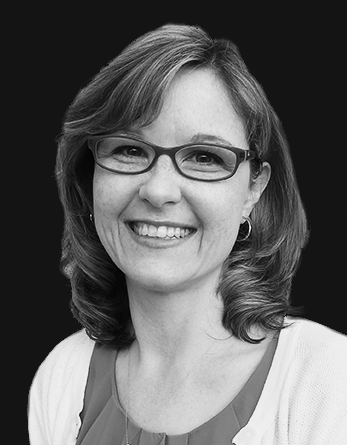
Mental illness can seem tricky or uncomfortable for a layperson in care ministry. Your lay leaders may feel they aren’t qualified to provide care for people diagnosed with a psychiatric illness. Yet people with mental illnesses are in our churches, and they need the help and care that lay leaders can provide.
This article will help you encourage your lay leaders to know what they can do that’s helpful, when to refer a problem, and what advice is appropriate to give regarding psychiatric medication. We gleaned our information from a panel of experts1: Dr. Sam Williams,2 counselor Omar King,3 psychiatrist Dr. Mark Cheltenham,4 and pastor (and former pharmacist) Phil Sasser.5
Here are the questions and the panel’s responses:
What care can a lay leader offer a mentally ill person?
Williams: If understanding the source of the problem was the prerequisite for giving help, no one would be able to help. Understanding the human brain … and its intersection with the soul and why people do what they do, there are few questions more complex than that. It’s impossible to fully understand.
If understanding the problem was a prerequisite for helping, no one would be able to help.
These are people who are made in the image and likeness of God. They can be loved; they can be cared for. They need truth just as much today as they did yesterday. A psychiatric problem or a mental disorder is always a spiritual challenge in the same way that cancer is, in the same way that a really difficult spouse is, in the same way that being absolutely broke and not knowing where next week is going to come from is. These are spiritual challenges that everybody faces. Mental and psychiatric disorders fall into the same camp. They are forms of suffering and stress. Sometimes that person is culpable for that, often, but sometimes there are complexities there. We don’t know exactly what’s coming from the body, the brain, the parents, the culture, and all these other variables.
Some of the most helpful people in our lives have been people that have just been there for us. It’s not something they said, necessarily. Maybe it’s just one or two kind words, or they’re just always there. They don’t give up on us.
Sasser: Your lay leaders might not be able to understand everything about the mentally ill person, but they can give encouragement and support. The fact that someone has a diagnosis of something, that person is still created in the image of God; he or she still needs love. As a lay leader, just being there with a certain acceptance, care, and love for the person: that’s 1 Corinthians 13 in action.
When should a lay leader refer the person?
King: I think oftentimes as soon as laypeople hear that someone has a mental illness, they either think they’ve got to give everything to that individual and end up getting in over their heads, or they are overwhelmed and they think, “I can’t do anything at all.”
It’s important for your lay leaders to learn how to be comfortable being uncomfortable. And ask some questions, listen well, try to understand the nature of the person’s problem, and then decide, “Okay, I can help with these things, but not this thing.” If they’re trying to avoid it, encourage them to stay in it just for a little while longer to see what they’re actually capable of and able to do.
Williams: It’s really just a matter of humility about where your laypeople’s strengths and weaknesses happen to be. One of the things that really helps is for them to be humble about that and talk to somebody else that might have been down that road before.
What if someone asks if taking psychiatric medications is a sign of spiritual weakness?
Williams: Dr. Michael Emlet, a family practice physician [and Christian counselor], spoke about medicines and excesses on both sides of the fence. He said that for some people, their rush to medicine is a sign of a spiritual problem, and for other people, their absolute refusal to take medicine can be a sign of pride or a kind of a shame-honor thing: “I don’t want other people to know I’m taking medicine.” How important is it that other people know? Why is that the deciding factor? I think when people are making decisions about medicine, it’s a judgment call. It’s a wisdom decision. It’s a matter of discernment. It’s a matter for prayer. Yes, your lay leaders should recommend that a person talk with a pastor and, yes, talk with a doctor and, yes, think it through, but make sure the decision is based on wisdom.
What’s the goal for helping people on medications?
Cheltenham: For Christians and nonmedical professionals to encourage people to get off medications, I think that might be a little risky. It might be outside of their scope, and they might be overstepping their bounds, but your lay leaders having a conversation where they support or are interested in how those medications are affecting the person is encouraging to people who have to take medications daily.
Sasser: Our goal is not to get people off medication. Our goal is for people to do well in the Lord. That’s our ultimate goal. That’s what we’re trying to do. There are extremes where people see medication as their answer. That’s not healthy either. We really want Christians to engage in God, actively pursuing. We make that our goal.
What if someone feels guilty about taking psychiatric medications?
Cheltenham: I go to Romans 8: “What can separate us from the love of God?” Would [a person] say, “famine, distress, tribulation, psychiatric medication”? Because we can always find a reason to separate us from God’s love. “I got divorced. I’m unemployed. I got evicted. I have a mental illness.” Guiding people back to the truth of the gospel and the whole biblical narrative—and placing them within that narrative—and Christ’s atoning and finishing work helps me lead other Christians back to that.
What if someone asks why God is okay with people taking psychiatric medications?
Sasser: God’s common grace has enabled mankind to do and make incredible inventions and discoveries. They can be used wrong, and people can be terrible in the administration of them, but, in general, common grace is to relieve human suffering and help people. That’s the goodness of God to us. It’s even come through unbelievers. I think medication falls in that category. Also take a look at Brad Hambrick’s article “Pastor, should I take psychiatric meds?”
Conclusion
Your lay leaders have a lot to offer as your church seeks to care for the mentally ill in your congregation. Reassure them in this, and consider sharing this article or the principles set forth here.
- A special thanks to Sovereign Grace Church of Apex, NC, for allowing CareLeader.org to use the transcript from this panel discussion as the basis for this post. Sam Hodges attends the church and led the panel discussion.
- Dr. Sam Williams has a master’s degree in clinical psychology. He was in private practice for ten years as a licensed clinical psychologist in Lake Charles, LA. Sam now teaches counseling at Southeastern Baptist Theological Seminary in Wake Forest, NC.
- Omar King received his master’s of divinity with biblical counseling degree from Southeastern Baptist Theological Seminary. He counsels at Bridgehaven Counseling Center in Raleigh, NC. He also has level 1 certification as a clinical pastoral educator through Duke University and Rex Healthcare.
- Dr. Mark Cheltenham studied medicine at Howard University. He’s been practicing psychiatry for ten years. He’s worked in homeless shelters, prisons, private hospitals, and substance abuse clinics.
- Phil Sasser is a former pharmacist and is currently an elder at Sovereign Grace Church in Apex, NC. Phil owned two pharmacies about thirty years ago after he graduated from Ohio State University Pharmacy School in 1972. In 1982, he went into full-time ministry but occasionally worked part-time as a pharmacist up until 2009.

